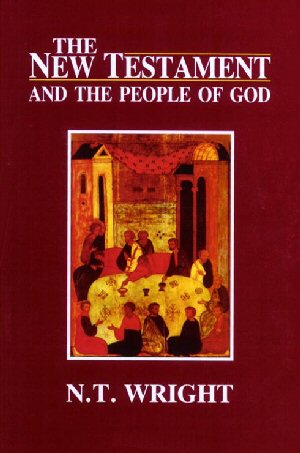N.T. Wright, The New Testament and the People of God: Christian Origins and the Question of God, (Fortress Press, 1992), 334.
Covenantal Soteriology
“It should be noted most emphatically that, although ‘resurrection’ is naturally something that individuals can hope for, for themselves or for those they love, the belief...is always focused on a general resurrection at the end of the present age and the start of the age to come. This will be a raising to life in which all Israel...will share. Seen from one angle, it will constitute Israel’s salvation: after the long years of oppression and desolation, she will be rescued at last. From another angle, it will constitute Israel’s vindication (or ‘justification’): having claimed throughout her history to be the people of the creator god, the resurrection will at last make the claim good. Creational and covenantal monotheism, and the eschatology to which they give birth, thus form a context within which what is sometimes called ‘Jewish soteriology’, the beliefs that Jews held about salvation, may be situated accurately and fruitfully...The word ‘salvation’ would denote, to a first-century Jew, the hope...seen particularly in terms of Israel’s rescue, by her god, from pagan oppression. This would be the gift of Israel’s god to his whole people, all at once. Individual Jews would find their own ‘salvation’ through their membership within Israel, that is, within the covenant; covenant membership in the present was the guarantee (more or less) of ‘salvation’ in the future.”
N.T. Wright, The New Testament and the People of God: Christian Origins and the Question of God, (Fortress Press, 1992), 334.
N.T. Wright, The New Testament and the People of God: Christian Origins and the Question of God, (Fortress Press, 1992), 334.
Subscribe to:
Post Comments (Atom)


No comments:
Post a Comment